Is Stainless Steel Waterproof? Yes, With Caveats
Author: Anne Cowart | Editor: Omar Alonso
Review & Research: Jen Worst & Chris Miller

Do you own stainless steel appliances in your home? Do you have stainless steel outdoor future? Is stainless steel waterproof? Let's find out.
Some homeowners worry that stainless steel will rust and corrode if exposed to water and the elements. If you have no idea about the composition and durability of this metal, this post is for you. We'll discuss everything you need to know about stainless steel and how to care for it properly.
Can Stainless Steel Get Wet?
Take a look at any modern kitchen, and you'll likely find a double-door stainless steel fridge. Look in any professional kitchen; you'll find stainless steel adorning everything from the extractor hoods to the hob and the fridges and even the sinks.
So yes, if the sink is made of stainless steel, and even pots, pans, and flatware and silverware, then stainless steel can get wet. This doesn’t mean you want to let it stay wet for really long amounts of time, though. This highly versatile metal looks great in many applications, and its strength means it's resistant to bumps and scratches, though with enough usage you will need to learn how to get scratches out of stainless steel.
Stainless steel is a popular metal used in many manufacturing processes. From cutlery to fridge doors, stainless steel is renowned for its strength and corrosion resistance. Brushed stainless steel looks fantastic, giving any kitchen a high-quality, sleek look. As a result, stainless steel products for the home are some of the best-selling items available.
Is Stainless Steel Waterproof?
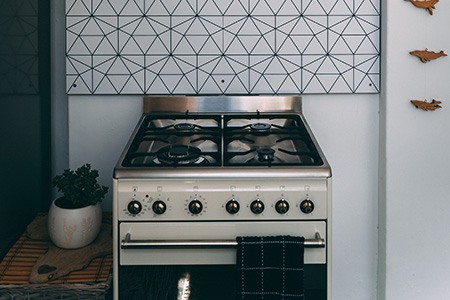
So, is stainless steel waterproof, and will it rust? Yes, it’s waterproof and no, it won’t rust (not like other metals, anyways). Stainless steel is one of the few metals that's rust-resistant. Manufacturers call it "stainless" because it has corrosion-resistant and stain-resistant properties. The material might dull over a few decades, but a simple buffing restores its look.
Stainless steel is an alloy of steel that contains a specific percentage of chromium. The 10.5% or more of chromium in the alloy creates a reaction with the surrounding air that forms a protective barrier. It is this outer layer that makes stainless steel extremely resistant to rust, corrosion, and discoloring.
Stainless steel is available in several categories, or “grades." 304L stainless steel is the most popular grade for constructing kitchen appliances and crockeries like knives and forks. It has excellent water-resistance properties and doesn't tarnish or rust. You can leave stainless steel in water for weeks (though this is not recommended), and it won't show any signs of corrosion.
Pull it out of the water, and leave it to air dry, and there's no risk of tarnishing or rusting. It's a highly water-resistant material and lasts forever with the right care. However, if you open the fridge and accidentally spill some water or juice on the door's exterior, it dries and leaves what looks like a stain.
Typically, wiping down the door with a rag and buffing out the area removes the stain and returns it to its former splendor. You don't need to spend much time or effort buffing it out; the steel looks great again after a quick wipe.
Will Stainless Steel Appliances Rust?
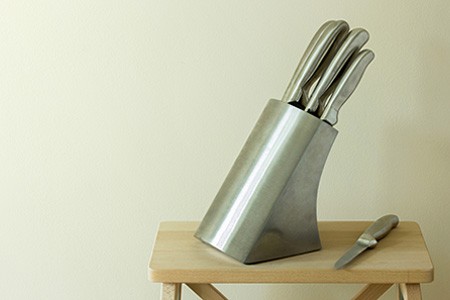
As discussed, the properties of stainless steel make it impervious to rust. However, if you damage the surface of stainless steel, especially on home appliances like fridge doors or washing machine housings, you might notice some rust forming in the crack.
Stainless steel is an expensive material and four or five times the cost of standard carbon steel. As a result, most manufacturers only use a thin sheet of stainless steel, ranging from 0.1 mm to 0.3 mm thick, on the appliance exterior. They might use an underlying steel sheet to give additional strength to the appliance.
If this material is exposed to water through a crack in the housing, it might start to rust. As a result, it appears like the stainless steel is rusting, but that's not the case. It's actually the underlying materials starting to corrode that give this impression.
Different manufacturing brands use different thicknesses of stainless steel in constructing their appliances. So, the strength and resilience of the stainless steel casing vary, depending on the manufacturer's reputation.
Why Is Stainless Steel Rustproof?
Is stainless steel waterproof? Yes, but does that mean it won't rust? Stainless steel is an "alloy" steel. So, it has a different composition from standard carbon steel used in other garden ornaments, appliances, and furniture applications. Manufacturers blend steel with another metal called "chromium" to produce stainless steel.
The higher the chromium content in the alloy metal, the stronger and more corrosion-resistance it becomes. For example, 904L stainless steel, commonly used in engineering applications, can transport acids through chemical plants without the acid eating away the metal.
There are over 150 varieties of stainless steel available. 904L stainless steel is incredibly expensive to produce, and it's not used in household applications like appliance or furniture manufacturing. Standard 304L stainless steel used in these products has around 10.5% chromium content.
Other common alloys are 304, which you may see referred to as 18/10 or 18/8, which means it has 18% chromium and 10% (or 8%) nickel. These are higher grades of stainless steel that won’t tarnish, though lower grades can be more susceptible over time, which is why it’s important to dry it off after use.
This ratio gives the furniture and appliances excellent strength and corrosion resistance, but it's not indestructible. If you don't care for or maintain your stainless steel, it might eventually start showing signs of corrosion.
Does Bleach Have a Corrosive Effect on Stainless Steel?
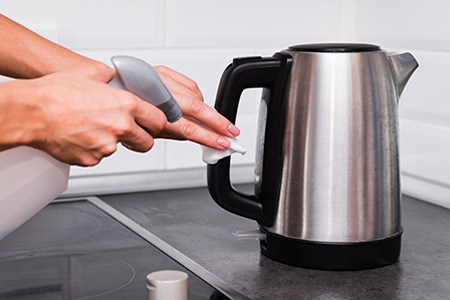
Many homes throughout America use bleach as an all-purpose cleaner for surfaces around the house. Mix it with water and remove the toughest grime and grit while sterilizing the surface. So, is it safe to use bleach on your sink and appliances? Or will it stain or corrode the surface?
It's fine to use bleach on these areas around the home. This metal is nearly indestructible, and it won't create any issues with staining or rusting if you get bleach on it. Even leaving bleach to air-dry on these surfaces won't cause any problems.
However, if you wipe down the door on a stainless steel fridge, you might notice that it leaves streaks when it dries. The chemicals in the bleach dry and leave a white residue on the stainless steel, but it's not a sign of corrosion or staining.
Take a dry microfiber cloth and buff away the stains, you'll find the fridge door looks as good as new.
Will Sea Air Rust Stainless Steel?
If you own a beach house, the summer can get humid, and the air almost tastes salty with the spray coming off the ocean in the midday heat. We all know that salt air and water are highly corrosive to carbon steel, but do they have the same effect on stainless steel?
It's true that carbon steel rusts readily in the sea air, especially on the beachfront. Even chrome-plated steel will end up rusting, particularly around welded joints. However, that's different with stainless steel. This sturdy material is so durable that it resists rusting in the sea air and if you get salt water on it.
So, you can expect your stainless steel appliances to look as good as new. For extra precaution, make sure you clean the appliances weekly to ensure you remove any spray making its way into the home and landing on stainless steel surfaces.
While stainless steel is rust-resistant, it's probably not a good idea to leave any metal, even stainless steel, exposed outdoors in an ocean environment. While 304L stainless steel is rust-resistant, the other components in the washing machine or fridge likely aren't. As a result, they'll rust, reducing the service life of these appliances.
Can You Wear Stainless Steel in the Ocean?
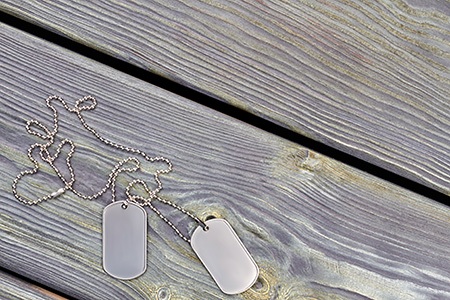
No, you should not wear your stainless steel jewelry in the ocean. The high salt content of the water can be very corrosive to your precious items, as well as the sand floating around and other chemicals and organic and inorganic substances. Always remove your stainless steel jewelry before entering ocean waters.
Can You Wear Stainless Steel in the Shower or Bathe With It?
Is stainless steel waterproof? Yes, but does that mean you can wear your stainless steel in the shower or in the tub without concern for the water tarnishing, rusting, or degrading your jewelry? Can you shower with stainless steel? Yes, you can!
But be aware that harsher shampoos, conditioners, and soaps can have corrosive chemicals in them that can harm the jewelry. It’s better to remove your jewelry to avoid this accidental exposure. So can you bathe with stainless steel? Yes, just be aware of what types of soap you're using.
Can You Wear Stainless Steel in the Pool?
No, you should not wear your stainless steel jewelry in the pool. If you do, you should rinse it with tap or drinking water as soon as you can and dry it off. Pool water features chlorine and other ionized chemicals that can cause corrosion to even molybdenum coated stainless steel. Even jewelry of this kind should be removed as a good habit.
What's the Better Choice for Water Resistance – Aluminum or Stainless Steel?
Aluminum is another popular material used in the construction of household appliances and home furniture. It's incredibly lightweight, making it a great option for a patio set, an awning frame, a fridge, and many other home products.
However, does aluminum offer the same resilience as stainless steel in these applications? Unfortunately not. While aluminum doesn't rust, it does corrode over time if exposed to aggressive air environments, such as sea-facing homes.
If you have a patio set made from aluminum, it's going to eventually succumb to the harsh air in the environment. You'll notice rust spots start to develop, especially around joints. Over time, these rust spots grow, creating corrosion on the aluminum surface that eats it up.
How Do I Avoid Damaging Stainless Steel?
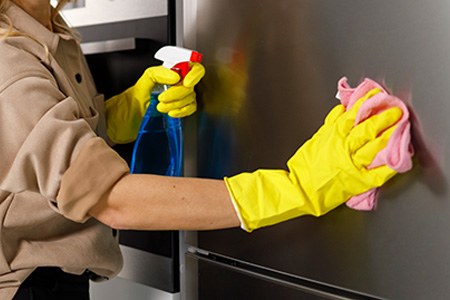
While stainless steel is a highly durable material, it's not completely indestructible. As mentioned, manufacturing brands add thin layers of stainless steel to appliance exteriors to give it a more satisfying aesthetic. So, if you bump something heavy into the fridge door, you can expect it to dent or perhaps split the casing.
How Do I Prevent My Stainless Steel Appliances & Furniture from Rusting?
If your stainless steel starts rusting, it's going to slowly eat away at the furniture or appliances, leaving unsightly yellow and orange spots on the material. However, it doesn't have to be this way. With the right strategy, your stainless steel home products can last a lifetime.
Stainless steel is highly corrosion-resistant, and it will put up a good fight against aggressive environmental conditions. You can help it outlast the elements by maintaining it properly. As mentioned, if you live in coastal areas, wiping your appliances and furniture frames down every week during your normal home cleaning chores helps it stay looking as good as new.
There are no special treatments required for caring for stainless steel. Just a quick wipe with a basic all purpose cleaner is all that's necessary to keep it looking good. Don't use Windex on stainless steel, though. Keep the furniture undercover if it's outdoors and out of the rain and wind. Reducing exposure to the elements goes a long way to preventing corrosion.
Some manufacturing brands provide a weather-proof clear coat to stainless steel furniture if it's intended for outdoor use. However, "brushed" stainless steel, like the material used in appliance construction, doesn't have this coating because the idea is to promote the aesthetic of the brushed look of the appliance. However, since they're kept indoors, all you need is basic maintenance to keep them looking good.
So, Is Stainless Steel Waterproof? Kind Of...
To summarize, stainless steel can handle some normal water exposure (but not pool water or ocean water), as long as you dry it off when you're done. It's designed to resist rusting and corrosion, but that doesn't mean it can do so forever without some basic care involved.
The best practice is to always remove stainless steel jewelry before washing dishes, bathing or showering, or swimming. If they do get wet, rinse them off and then dry them off as soon as is reasonably possible. In this way, you'll enjoy having a nice luster for the lifetime of the item. So, is stainless steel waterproof? Only somewhat, as long as you're responsible.




